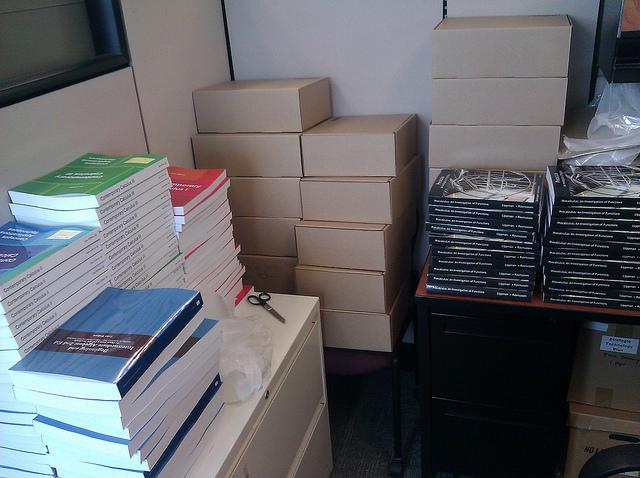U.S. Rep. Mark Pocan heard from Wisconsin Public Interest Research Group members, faculty and staff in a meeting Monday about how to keep textbooks affordable.
Pocan recently proposed a bill titled “The Affordable College Textbook Act,“ which looks to expand the use of open textbooks on college campuses by providing affordable alternatives to traditional textbooks to keep prices lower. The act was introduced in the Senate in November 2013.
According to a WISPIRG statement, textbook costs have emerged as a major factor in college costs. A textbook can cost more than $200 and the College Board estimates students will spend $1,200 on textbooks and other course supplies this year.
“There’s no silver bullet solution for rising textbook costs,” Mackenzie Hess, a student intern for WISPIRG, said. “We know that it will take a variety of solutions to address the problem. The one solution that we think holds particular promise is open textbooks.”
Open textbooks are faculty written and peer-reviewed like regular textbooks, but they are published under an open license. This means they are free online, free to download and cheaper to buy in print, Hess said.
Pocan said these types of strategies could have a strong effect on how a student pays for school.
“If, ultimately, we did something like this, at least we’re addressing one of the areas that keeps having an impact on students and their ability to afford an education,” he said.
Pocan’s legislation would create grants to support pilot programs at colleges and universities for open textbooks and improve existing requirements for publishers.
Bruce Maas, vice provost for information technology, said UW has had four pilot programs in progress on campus testing different textbook options, including online textbooks and e-books. The most recent pilot involves open textbooks, and eight UW professors are participating, he said.
“Our approach from the beginning has been that we really need to work closely with faculty and then listen carefully to the feedback as we go through the various pilots and learn from them,” Maas said.
He also said although the concept of open textbooks has received a lot of interest, not all faculty members believe it is the best option.
Grant Petty, a professor of atmospheric and oceanic sciences, said although he supports open textbooks, getting faculty to produce such material could be difficult because of the time and commitment needed to devote to such a task.
Petty also said the root of the issue of high textbook costs is not production, but the process of how publishers set prices.
Petty listed three goals needed to achieve lower textbook costs in a statement. These included educating both students and instructors about how publishers price textbooks, developing new strategies to put pressure on publishers to lower costs and making UW a national leader in organizing resistance to high prices.
[Photo by Flickr user caswell_tom]


